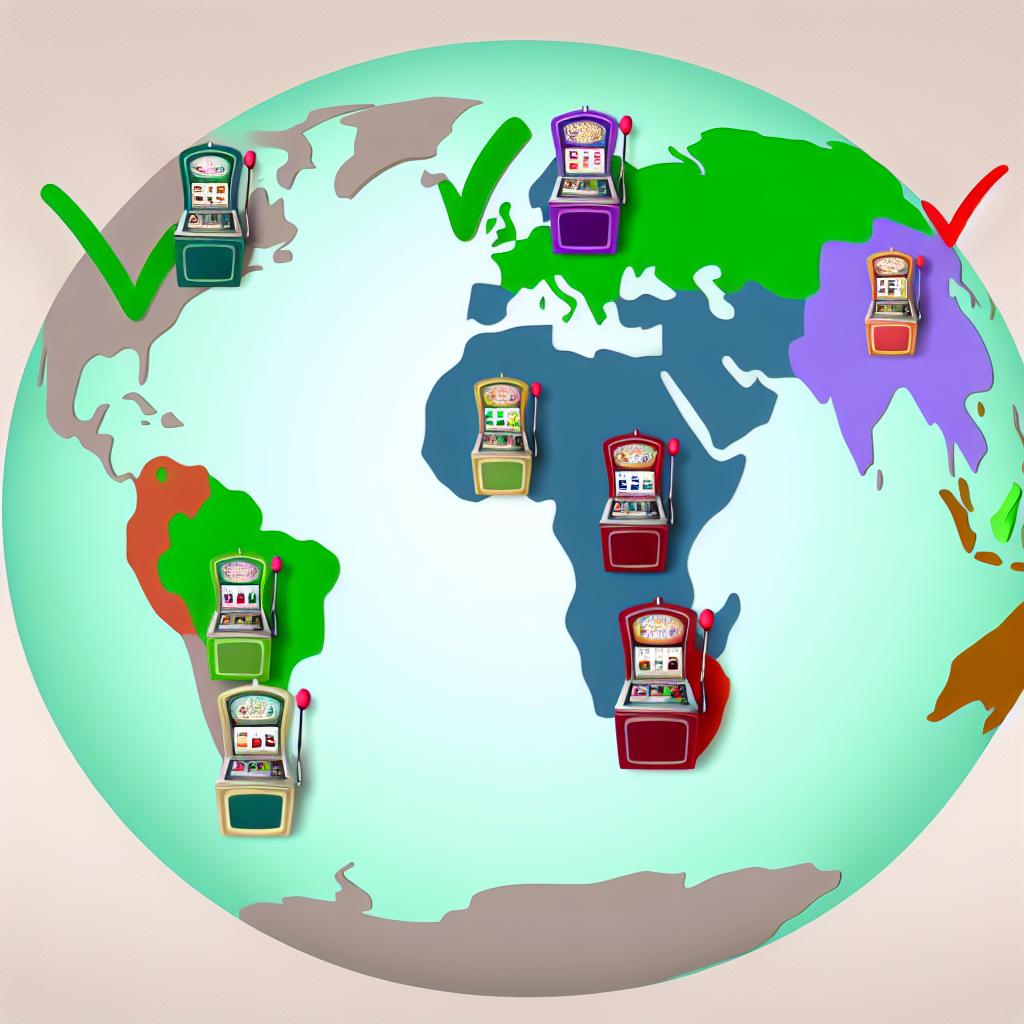Overview of Slot Machine Legality Worldwide
Slot machines, colloquially known as one-armed bandits, hold a prominent position in the global gambling landscape. However, their legal status is far from uniform across different countries. This variation is shaped by cultural, economic, and regulatory influences. A closer examination of these differences provides insights into the global legal frameworks governing gambling activities.
Slot Machines in North America
In North America, slot machine legality displays significant variation across regions. The United States has a state-centric approach to gambling regulations. Each state has the authority to dictate the legality of slot machines within its borders. For example, Nevada and New Jersey are renowned for their welcoming stance on gambling, including slot machines, with major gambling hubs in Las Vegas and Atlantic City. These states have developed a flourishing industry centered around gambling, contributing significantly to their local economies. In contrast, other states that lack major gambling industries often enforce strict regulations or outright prohibitions on slot machines to align with their local legislative views and social norms.
Similarly, in Canada, the approach to slot machine legality varies by province. Some provinces, like Ontario, take a more liberal stance, operating comprehensive networks of legal casinos that include slot machines as a key component of their offerings. At the same time, other provinces maintain tighter controls, carefully managing and limiting where and how these machines can be used to prevent possible negative societal impacts linked to gambling.
Slot Machines in Europe
Across Europe, the legality of slot machines is generally more uniform, albeit heavily regulated. The United Kingdom is a prime example, where slot machines are permissible in licensed betting shops, casinos, and pubs. These activities fall under the authority of the Gambling Commission, which establishes stringent guidelines and regulations to ensure responsible gambling practices. Germany also permits the use of slot machines but applies strict operational constraints, such as capped betting limits and controlled payout rates, to regulate the industry actively.
On the other hand, countries with a more conservative stance towards gambling, like Poland, impose strict limitations. In Poland, slot machines are restricted to state-operated casinos, reflecting a cautious legislative attitude toward gambling. The restrictive policies embody cultural values and regulatory perspectives that prioritize minimizing potential gambling-related harm.
Slot Machines in Asia
Asia offers a diverse perspective on slot machine legality, with considerable differences between countries. Macau, often referred to as the “Las Vegas of Asia,” embraces slot machines as a legal and prominent element of its vibrant casino industry. The region’s regulatory environment facilitates a robust gambling market that attracts tourists from across the globe, contributing significantly to its economy.
Contrastingly, Japan presents a more nuanced legal scenario. Traditional slot machines are prohibited; however, pachinko machines—a comparable form of gambling—remain legal. These machines operate under numerous restrictions, representing a cultural adaptation that balances traditional gaming practices with regulatory compliance. The unique legal position of pachinko machines highlights the region’s distinct approach to gambling regulations.
Slot Machines in Australia
In Australia, slot machines, commonly referred to as “pokies,” are widespread and legally sanctioned throughout the country. Their regulation, however, is delegated to individual states and territories. For instance, New South Wales stands out with a high density of pokies, recognizing their considerable contribution to both entertainment and the state’s revenue. The governance of slot machine usage across Australian states reflects a pragmatic approach, taking into account economic benefits alongside responsible gambling measures.
African Slot Machine Legislation
In Africa, the legal landscape for slot machines is notably varied. South Africa exemplifies a country with a structured approach, allowing slot machines within its casinos under the oversight of the National Gambling Board. This regulatory body ensures that operations align with national standards and contribute positively to the industry’s growth and economic impact.
Conversely, many other African nations exhibit different regulatory environments. Some lack specific regulations for slot machines, resulting in informal or deregulated gambling activities. The absence of formal regulations often leads to challenges in managing and controlling gambling-related issues.
Conclusion
The global legality of slot machines is governed by a rich tapestry of laws and regulations, reflecting diverse cultural perspectives and economic interests. While some jurisdictions have integrated slot machines as a significant component of their gambling industries, others enforce stringent regulations or outright bans. These varying legal frameworks highlight the complex relationship between gambling and regulatory policies across different regions.
For those seeking detailed and country-specific legal information on gambling laws, it is advisable to refer to local legal resources or consult authoritative sources such as government websites to gain an accurate understanding of the prevailing legal landscape. Understanding these nuances aids in comprehending the broader picture of global gambling regulations and slot machine legality.

